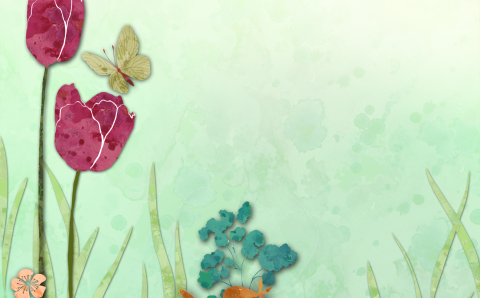I have chronic major depression.
Sometimes it feels like depression has me. Depression does that to you: it envelops you, suffocates you, drowns you.
I remind myself that I have depression, but I am not depressed. I’m not this illness, even when it has swallowed me whole. Depression is not who I am.
For me, depression does not go away. It ebbs and it flows. Over the years, I have worked with my doctors to develop a strategy for managing depression.
Understand, though, that you “manage” depression the way you manage a lion with a whip and chair. You can keep it under control, and you can keep the worst symptoms at bay. But you’re still in a cage with a wild animal and you must never forget that.
Depression is a complex condition with physical, emotional, psychological, and spiritual dimensions.
Physiologically, depression hurts. It physically hurts. When the depression flares up, I feel a deep, penetrating ache radiating throughout my body from my core. My entire being hurts. It feels like my soul is dying. Maybe it is: depression is a cancer of the soul.
While depression has emotional and psychological dimensions, it isn’t about feeling sad. My body feels sad, but my brain feels muddled. When the depression was very bad, my brain felt full of static. I couldn’t think. It was like watching TV without a cable connection or listening to the radio as you lose the signal.
When your brain feels like that, it’s impossible to get things done. It’s impossible to know what is wrong. It’s impossible to figure out what to do next. Your brain is just scrambled signals. So for me, one of the first steps to recovery was unscrambling the signals. In my case, medication was and is central to calming the noise in my brain.
Medication does not make the pain go away. Its role is to add stability and to make it easier to process what I am experiencing so I can tap into other parts of my management strategy to address other symptoms.
You need a multifaceted strategy to manage depression because depression is a shape-shifting illness. It is a trickster. It takes different forms, throws up a variety of symptoms, and masquerades as different ailments.
Sometimes you can’t sleep; other times, you sleep too much.
Sometimes you can’t eat; other times, you can’t stop eating.
You feel angry. You feel irritable. You feel despondent. And then you don’t feel at all. The whole world smells and sounds and tastes grey. You don’t see how blue the sky is or how fresh the air feels after the rain. You don’t hear music anymore; you only hear noise.
Depression is a shape-shifter and it is a liar. The lies are probably the cruelest part of the illness.
It tells you that everything you’re feeling is your own fault, or that what you’re experiencing isn’t real and the pain is only in your head. If you just tried harder, it says, the noise in your head would stop and your soul wouldn’t ache.
Depression is a lying illness, and its most sinister and dangerous lie is that this darkness around you will not end, that the pain is permanent, that there is no relief.
It lies. It lies about the most important truth that all new things begin in darkness, that dawn comes out of the deepest night, and that if the light isn’t there yet, then sometimes you have to reach into the darkness and pull it out.
Depression is a cancer of the soul. Not everyone survives cancer.
If you are going to survive, you need tools of hope to claw back at the darkness and to wring light out of it.
You start by building a good foundation for mental health to keep the darkness at bay. You add on habits and practices that you use when you feel the light abating.
I try to maintain a good baseline of health through a combination of medication, psychotherapy, sleep hygiene, sports, and community. I have an inventory of tools I use when I hit a flare-up—things like visiting bookstores, listening to music, watching cat videos, taking favorite walks, engaging in creative pursuits, and having conversations with trusted friends.
One of the ways you can help people with depression is by being present. Just be there and don’t offer advice. Recently, during a particularly difficult time for me, a dear friend simply said, “You can leave all these feelings with me. Just bring them here. It’s okay.” She did not try to fix me or counsel me. She just stayed with me. The darkness is not so scary when you know you are not alone.
If you are not sure if someone is okay, ask. Yes, you’ll have some awkward conversations. But isn’t the kingdom of heaven paved with awkward conversations as we walk alongside each other, carrying each other’s burdens? So ask. You can ask, “Are you okay?” Or, “Would you like to have coffee together? Or would you care to join me on a walk?” Be a tool of hope; don’t tritely suggest that “maybe more prayer would help.”
People with depression do not need your advice. We need you to see us and to accept us, broken and wounded as we are. And we need your patience, because depression makes you selfish. Managing depression requires me to be very self-aware. I am always very cognizant of what I am feeling and what things are affecting me on any particular day. I need to be this self-aware to stay healthy. However, being this self-aware tends to make me self-centered and even, if I am not careful, selfish. I cherish people’s ability to be patient with me, to show me generosity of spirit, and to understand that I am more than my moods.
I would be remiss if I did not recognize what depression has given me. When I was in the deepest part of the worst depressive episode I have ever had, I felt the presence of God in a way that I had never experienced before. Sure, I knew God loved me. But in that dark, horrible time, I felt how much God loved me. I felt physically cradled by God.
When you have depression, you need a big God. I mean, you need a really, really big God. You need a God big enough to handle your anger and your doubts. You need a God whose compassion and mercy tolerate your rage and who comforts you in your desolation. You need a God whose patience is infinite and who will speak to you in a gentle whisper rather than angry judgment. You need a God who sees you, who knows you in all your passion, in your good moments and your bad moments—and who welcomes you as God’s beloved.
I will likely have depression for the rest of my earthly life. But for all of eternity, I have been, am, and will be God’s beloved. And so I go forward, knowing that even in the darkest places, my God will hear me.
About the Author
Theresa E. Miedema teaches business law and ethics at University of Ontario Institute of Technology. She grew up in the CRC and now worships at an Anglican church in Toronto, Ont.





